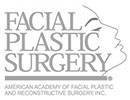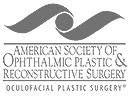A plastic surgeon is a qualified professional who has the ability to take on a wide range of procedures. These include both plastic surgery related, and cosmetic surgery related procedures. However, most plastic surgeons focus on appearance-related injuries, illness, defect, deformity, or accident related surgeries. These are life-altering medical procedures that can allow you to pick up your life from where you left off.
WHO IS A PLASTIC SURGEON?
A plastic surgeon is a talented and skilled individual that has the ability to perform flawless procedures, these medical doctors spend their entire life improving and reconstructing the physical appearance of individuals, by performing plastic surgery. In addition, plastic surgery is divided into two specialties:
- Reconstructive Surgery
- Cosmetic Surgery
Cosmetic surgery is set in place to improve the appearance of a patient while reconstructive surgery focuses on function and normal appearance. There is a popular belief that plastic surgeons simply spend their days performing tummy tucks, and/or facelifts. While it’s true that a large number of patients come in for such procedures; but it does not mean a plastic surgeon is limited to these procedures. There are times when a plastic surgeon focuses on how the function and normal appearance would appear. However, each process is different; and requires a special touch.
Plastic surgeon and cosmetic surgeon aren’t certified together.
Once you have been certified as a plastic surgeon, you can specialize in cosmetic surgery and apply for a certification. Getting a certification in cosmetic surgeries allows a plastic surgeon to enhance their skills, and offer more services to their patients.
A plastic surgeon is someone who offers a strong understanding of surgical anatomy, physiology, pathology, and additional basic sciences. These are a huge aspect of their specialty as they need to understand each and every component they might come in contact with. Along with technical expertise, manual dexterity, ethical behavior, surgical judgment, and interpersonal skills. These are the bases of becoming a well-liked and professional plastic surgeon. As these aspects lead to better overall results.
Keeping in mind that patient care is essential, a plastic surgeons job entails educating the patient; and help them develop a rational sense. These include informing them about various risk factors, the possible outcomes, and everything that is of relevance. In addition, you will be required to answer any and all questions your patient might have.
Educational Requirements to Become a Plastic Surgeon
A plastic surgeon can easily be compared to any other physician as their level of education is based on the same requirements. Becoming a plastic surgeon requires many years of hard academic work. They start with four years in undergraduate science degree, which is designed to meet medical school requirements. Which is why most of the courses are based on sciences, humanities, and mathematics. During the first two years, you will build your foundation with courses such as pharmacology, advanced sciences, physiology, and ethics. While the third and fourth year of medical school focuses on hands-on clinical experience.
Bachelor’s Degree – During your undergraduate years, you are required to complete all the pre-med courses. As these will help build the base to your career as a plastic surgeon. You will be required to take Biology, Physics, and Organic & Inorganic chemistry. Before you graduate, you will undertake a medical college admission test, also known as an MCAT. Along with high grades, you will need a few letters of recommendation from mentors, professors, people who have good standing in the community, and if possible from a current plastic surgeon. To help add more appeal on your side, you should work in a hospital setting, demonstrate leadership qualities, participate in extracurricular activities, and take on working hours under doctors. These can prove to be a great advantage when applying to any medical school.
Medical School – Getting through medical school is not enough, you have to pass out with good standing grades. The first two years of medical school will be based on advanced courses in science. These include pathology, pharmacology, microbiology, physiology, anatomy, and biochemistry. The remaining two years are basically clinical rotations where you get hands-on experience with patients. Here you will be presented with two options. You can either earn a Medical Doctor Degree and become an M.D, or you can attend Osteopathic Medical School, and earn a D.O. degree.
Get Your License and Residency
License – Once you have passed out from medical school and wish to practice medicine in the USA; then you will require a medical license. This medical license allows you to practice medicine in the USA. If you are an M.D. you must pass the United States Medical Licensing Examination, or the USMLE. On the other hand if you are a D.O. you must pass the Comprehensive Osteopathic Medical Licensing Exam or the COMLEX. Both tests have three parts, which are set in place to help assess your qualifications. These tests will challenge your knowledge, skills, and understanding.
Residency – Any aspiring plastic surgeon has choices at this point. Once you have acquired your medical license, you will finally pick you residency. To become a plastic surgeon you can either fulfill 4 years as a general surgeon resident, this includes various types of surgeries, clinical rotation; followed by a 3 years residency in plastic surgery. You can do a residency in ophthalmology or ENT. Or you can take on a six-year integrated plastic surgery residency which includes both aspects of training. I originally did my residency in ophthalmology and then later completed a oculoplastics fellowship which allowed me to become an expert in facial and eyelid plastic surgery.
Fellowships
Fellowship – There are a few sub-specialties available for a plastic surgeon. As a doctor, you can either choose to specialize in a one-year fellowship program. Along with gaining training in a specialty, the post-resident fellowship offers doctors the ability to work alongside practicing surgeons. During your time working in a private sector, you will learn how to choose your staff, assign responsibilities, set up an office, and expose yourself to ongoing issues. This will allow you to grow as a leader and showcase the level of responsibilities you can take. During your fellowship, the doctor you are working with will help guide you and advise you on your next move. A new plastic surgeon as yourself will need a strong support system to help get started. With constant support and insight; you will be able to train yourself; before opening your own private clinic.
Work Environments Available
As any doctor, a plastic surgeon can choose to practice in a number of settings, from Academic settings to community hospitals. They can easily go from any trauma ward, work n research, work in a private hospital/clinic, or in a multi-specialty practice. There are times when plastic surgeons go-ahead to work in outpatient clinics or any other region they feel their services are needed. The choice is personal and can shape your career. It does not matter if they are going ahead with a reconstructive surgery or cosmetic surgery a plastic surgeon always have a team to assist them. This allows them to have complete control over the situation and experts in each field by their side.
If you are associated with a hospital or clinic, they might call you in for an emergency surgery. For instance, an injury or accident that might be impacting the patient’s life. They will then go on to perform the required surgery, to help minimize the damage.
Private Practice
On the other hand, if you choose to work in a private clinic, or open a clinic of your own; you can choose the services you offer. This way you will have the control and independence some plastic surgeons prefer. As it allows them time to focus on surgeries that excite them and build on the skills they feel are necessary.
The only downside is that it will take a small fortune to open a clinic, and time to build a clientele. However, once you have settled in and worked has picked up; you will feel like you have made the perfect decision. I myself have worked in various sectors over the years, but nothing makes me happier than working in my own clinic.
If you want further guidance on picking the right plastic surgeon for you or if you are training to become a plastic surgeon and want guidance – feel free to reach out to me.






